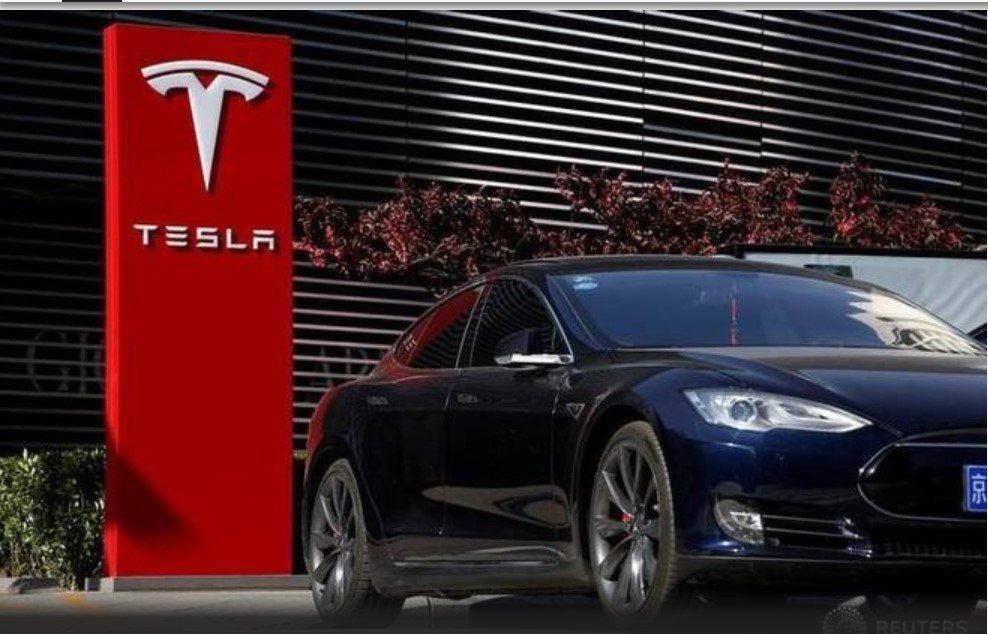(ATF) China has moved to sharply restrict the types of automotive data that companies such as Tesla can collect, requesting automakers to seek customer permission beforehand and restricting them from releasing the data beyond China’s borders.
Automakers in China must seek customer approval before collecting data on driving, according to draft rules issued Wednesday by the Cyberspace Administration of China (CAC).
Personal information and important data such as that on vehicles and people at military and government facilities should not be collected unless absolutely necessary, and must be stored within China’s borders, the draft rules said.
Any release of the data to overseas must pass a security assessment by the CAC.
Tesla said on the Twitter-like Weibo platform on Tuesday evening that it welcomes the regulatory advancement, and believes it will promote the healthy and orderly development of the auto industry.
David Zhang, a research fellow at the Research Centre of Automobile Industry Innovation under the North China University of Technology, said: “The new rules may limit Tesla’s advantages in capitalising on the data it collects. As we know, Internet companies analyse their users’ profiles and push targeted ads to the users. Tesla can potentially do this too. Tesla has shipped about 1.5 million electric vehicles in China. The number is still small, but the potential is there.”
Tesla’s controversial handling of data recorded by in-car devices has generated considerable debate in China after Tesla claimed after multiple car crashes that the “data” – only accessible to the company itself – showed no defect of its products.
PLA ‘SPY CAMERA’ FEAR
There were also concerns of “espionage”. A Reuters report said in March that the Chinese military had banned Tesla cars from entering its complexes because of security concerns over cameras installed on the vehicles.
But founder Elon Musk rejected the “spying” fear, saying via video link at a top Chinese forum in Beijing that his company was “very confidential with information” because it would be shut down if its cars were used for spying.
A video recorded by the camera in a Tesla car was retrieved by a hacker and shared over Weibo in April. Consumers were surprised by the broad view captured by the camera, and one person commented that the image resolution was even higher than videos streamed on Netflix.
The debate about Tesla’s data became more heated after a Tesla owner staged a dramatic protest last month at the Auto Shanghai show.
The protester, a woman from Zhengzhou whose father was involved in a Tesla crash in February, climbed atop a Tesla car at the auto show and shouted out “Tesla brakes fail.” She was later taken into police custody for five days.
Tesla originally rejected the vehicle owner’s request for access to the vehicle’s data but then disclosed it – not just to the woman’s email box but to the media as well – under pressure from regulators.
The move triggered another debate after the woman’s husband said Tesla had infringed on the woman’s privacy by releasing the data to the public when she was still in jail. The couple also questioned the authenticity of the data, which showed the woman’s father was driving at high speed before the crash and the brake had helped to slow down the vehicle.
Amid suspicion of its auto data, Tesla is developing an online inquiry system for customers to retrieve their driving data, a source from the company told China Business News last week.
Tesla is also reportedly setting up a data centre in China to store users’ data.
“If the rules are signed into law, Tesla will need to rectify its services to comply with the data privacy requirements. But it will take a while for the rules to be finalised because they involve many stakeholders and sensitive aspects. The costs are also very high for the automakers to make the changes. [But] Tesla is not singled out by the rules. All automakers in China must comply,” Zhang said.
CHINA CAR SALES UP FOR 13TH MONTH
Meanwhile, car sales in China rose 8.6% in April year-on-year in the 13th consecutive month of gains, industry data showed on Wednesday – although, Tesla electric vehicle (EV) sales fell sharply amid its recent controversies.
Sales reached 2.25 million vehicles in April, data from the China Association of Automobile Manufacturers (CAAM) showed.
Sales of new energy vehicles (NEVs) – including battery-powered EVs, plug-in petrol-electric hybrids and hydrogen fuel-cell vehicles – maintained momentum, jumping 180%, with 206,000 units sold in the month.
NEV makers such as Nio, Xpeng and Tesla are expanding manufacturing capacity in China, encouraged by a policy of promoting greener vehicles to cut pollution.
Tesla has had success in China, but sales fell sharply in April over the previous month.
The US EV company sold 25,845 locally-made vehicles last month, down 27% from 35,478 in March, according to figures released Tuesday by the China Passenger Car Association.
SHANGHAI EXPORTS
The report noted that in April, Tesla exported 14,174 cars from its Shanghai factory but did not disclose export figures for March.
In January, Tesla said its China-made Model Y SUV would be sold at a lower than expected price of 339,900 yuan (US$52,787), which was expected to boost sales.
Rating agency Fitch expects luxury car sales in China, including those by Tesla, to remain robust in 2021 although a potential price war may weigh on the margins of luxury car producers and dealers.
Aside from car data issues detailed above, Tesla also faces increased competition from Volkswagen and other marques. It is also set to lose hundreds of millions of dollars in carbon credits as other automakers meet emissions targets.
“[Tesla generated $518 million in cash] not from car sales but from regulatory credits, sold to more polluting car makers,” Danni Hewson, a financial analyst at AJ Bell, said.
“It’s a huge figure … and one that shouldn’t be relied on long-term as other manufacturers make the switch to electric models,” she added.
With reporting by Reuters
























